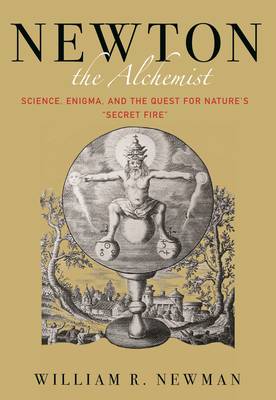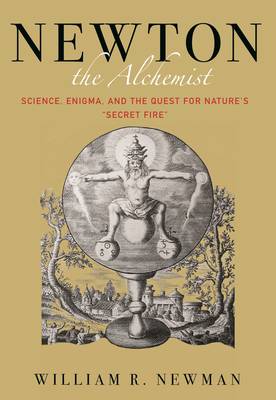
- Retrait gratuit dans votre magasin Club
- 7.000.000 titres dans notre catalogue
- Payer en toute sécurité
- Toujours un magasin près de chez vous
- Retrait gratuit dans votre magasin Club
- 7.000.0000 titres dans notre catalogue
- Payer en toute sécurité
- Toujours un magasin près de chez vous
Newton the Alchemist
Science, Enigma, and the Quest for Nature's Secret Fire
William Newman
Livre relié | Anglais
62,45 €
+ 124 points
Description
A book that finally demystifies Newton's experiments in alchemy
When Isaac Newton's alchemical papers surfaced at a Sotheby's auction in 1936, the quantity and seeming incoherence of the manuscripts were shocking. No longer the exemplar of Enlightenment rationality, the legendary physicist suddenly became "the last of the magicians." Newton the Alchemist unlocks the secrets of Newton's alchemical quest, providing a radically new understanding of the uncommon genius who probed nature at its deepest levels in pursuit of empirical knowledge. In this evocative and superbly written book, William Newman blends in-depth analysis of newly available texts with laboratory replications of Newton's actual experiments in alchemy. He does not justify Newton's alchemical research as part of a religious search for God in the physical world, nor does he argue that Newton studied alchemy to learn about gravitational attraction. Newman traces the evolution of Newton's alchemical ideas and practices over a span of more than three decades, showing how they proved fruitful in diverse scientific fields. A precise experimenter in the realm of "chymistry," Newton put the riddles of alchemy to the test in his lab. He also used ideas drawn from the alchemical texts to great effect in his optical experimentation. In his hands, alchemy was a tool for attaining the material benefits associated with the philosopher's stone and an instrument for acquiring scientific knowledge of the most sophisticated kind. Newton the Alchemist provides rare insights into a man who was neither Enlightenment rationalist nor irrational magus, but rather an alchemist who sought through experiment and empiricism to alter nature at its very heart.Spécifications
Parties prenantes
- Auteur(s) :
- Editeur:
Contenu
- Nombre de pages :
- 560
- Langue:
- Anglais
Caractéristiques
- EAN:
- 9780691174877
- Date de parution :
- 11-12-18
- Format:
- Livre relié
- Format numérique:
- Genaaid
- Dimensions :
- 185 mm x 257 mm
- Poids :
- 1156 g

Les avis
Nous publions uniquement les avis qui respectent les conditions requises. Consultez nos conditions pour les avis.






